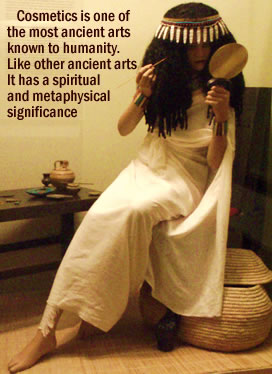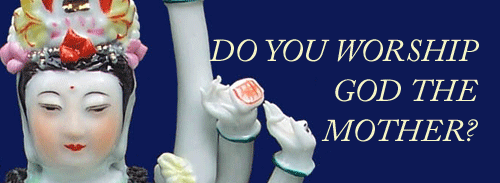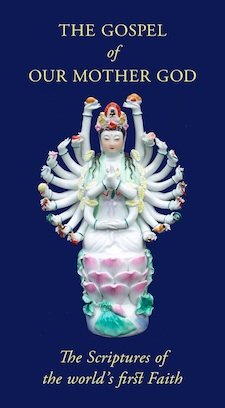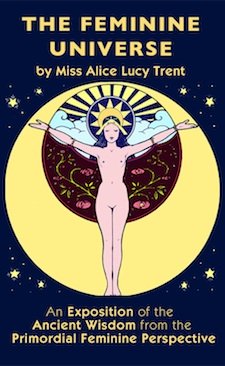The Philosophy Cosmetic
The Metaphysics of Beauty

"The Philosophy Cosmetic" is a phrase that rings strangely in the contemporary ear.
"What has beauty to do with philosophy?" is a question many will ask, but even those who know the answer to that may well ask, what has makeup to do with philosophy?
The Philosophy Cosmetic, or the metaphysical science of beauty, is, of course not primarily about "cosmetics" in the modern sense. But, as we shall see, they can actually have a far greater significance than some may think.
Let us begin by looking at the word "cosmetic" itself.
"Cosmetic" comes from the Greek word cosmos, which does not actually mean "beauty". It means "order".
Of course we are most familiar with the word "cosmos" as meaning "universe". So why does the word for the universe originally mean "order"? And why does it also mean "beauty"? And when it is applied to the enhancement of feminine beauty, is it still part of the same profound family of meaning?
Let us start from the beginning. For the Greeks, the creation of the world (or universe) was the creation of order (kosmos) out of chaos (Kaos). Thus the universe is "the Order": the Cosmos.
Interestingly, this is absolutely in line with modern physics which measures the existence of the universe in terms of ectropy (molecular and systemic order) as opposed to entropy or disorder/chaos. The inevitably increasing entropy – or disorder – of the cosmos – or order will lead to the final dissolution of the universe.
The Philosophy Cosmetic continues after break
This is in line with the metaphysical doctrine of the in-breathing of the cosmos back into the Dark Mother at the end of time, and with the fundamental metaphysical understanding (explained on a microcosmic level in our page on the Kali Yuga) that the whole process of time is essentially degenerative, beginning with the maximum proximity to Dea, or Order, and ending with the furthest separation from Her, in which the universe can no longer exist, and yet, paradoxically, therefore returns to Her.
Dea in Her Form as the Golden Order of the Cosmos is known as Sai Thamë, the Ordering Principle. As the Divine Beauty, or Love, She is known as Sai Sushuri, and – as we shall see as we further explore the Philosophy Cosmetic – it is no accident that Sai Thamë and Sai Sushuri are said to be sisters.
In the Abrahamic traditions, creation is seen as creatio ex nihilo – "creation out of nothing" rather than the emergence of cosmos out of chaos. However, since, as fundamental metaphysics teaches us (see chapter 5 of The Feminine Universe), manifestation is the marriage of Essence (or Form) and Substance (or "matter") – anything outside this (including "unmarried" Essence or Substance – pure Celestial Archetypes on the one hand and Prima Materia on the other) is, as far as the manifest cosmos is concerned, non-existent – or literally nothing.
The most fundamental Order of our cosmos lies in the harmony of Essence and substance. Thus the production of cosmos (order) out of chaos and the creatio ex nihilo are seen to be precisely the same thing viewed from different perspectives.
That Order which is the cosmos is fundamentally beautiful. The more ordered the cosmos, the closer it is to Dea who is the Divine Beauty.
Plato spoke of the Absolute as to kalon: "the beautiful", for earthly beauty is not merely a subjective perception: it is an absolute quality. All earthly beauty is a fragment or reflection of the Divine Beauty. The absolute Beauty is the source and wellspring of the beauty in every beautiful thing we see about us.
Thus, to return to our earliest questions, when we seek to enhance and make the most of feminine beauty on earth, we are pursuing an ancient art which is literally cosmetic. We are bringing ourselves into line with the Cosmos itself, by maximising our small part in its order and beauty.
To the Déanist, earthly feminine beauty is the very microcosm of both Divine and cosmic beauty, and while the literal sense of "makeup" and all that goes with it is only one aspect of the Philosophy Cosmetic, it is an important part and one at which we shall look more closely.
But in ending this page, let us assure you that your desire to make yourself more beautiful is not vain or trivial. It is the natural feminine desire to pursue the Philosophy Cosmetic.
See also:
Philosophy, Beauty, and Truth: the true philosophy of beauty.
The Philosophy of Makeup: The relevance of feminine Cosmetic Philosophy to actual cosmetics!
Send us your questions or comments
Chapel of Our Mother God Homepage
All written material at the Chapel of Our Mother God is copyright. Should you wish to reproduce any portion please contact us for permission.
Facebook or YouTube
![]()
This section:
Metaphysics
Gospel of Our Mother God
The Gospel of Our Mother God is a collection of inspirational texts, prayers and daily inspiration for the Mother-Faith devotee or household.
The Feminine Universe
The Other Philosophy
Everything you have ever heard comes out of the patriarchal world-view. Its materialism, its religion, even its feminism. Here is the other way of seeing the world; the natural way: the way that everyone saw things before patriarchy and will again when patriarchy is long forgotten.


